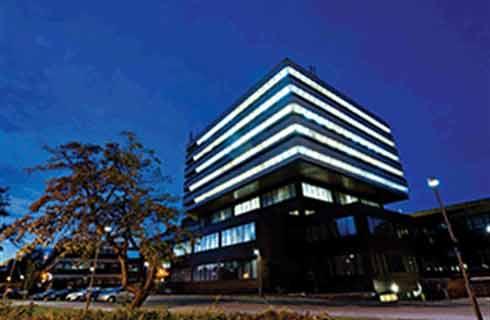- IDP China>
- 课程库>
- 工程与技术>
- 工程>
- 机械工业>
- Doctor of Philosophy in Mechanical and Aerospace Engineering - Propulsion and Energy Sciences
Doctor of Philosophy in Mechanical and Aerospace Engineering - Propulsion and Energy Sciences

学历文凭
Ph.D.

专业院系
Department of Mechanical and Aerospace Engineering

开学时间

课程时长

课程学费

国际学生入学条件
IDP—雅思考试联合主办方

雅思考试总分
6.0
- 雅思总分:6
- 托福网考总分:60
- 托福笔试总分:160
- 其他语言考试:NA
CRICOS代码:
申请截止日期: 请与IDP联系 以获取详细信息。
课程简介
相关申请
 预科
预科 奖学金
奖学金 实习机会
实习机会 在校学习
在校学习 跨境学习
跨境学习 校园授课-线上开始
校园授课-线上开始 在线/远程学习
在线/远程学习
开学时间&学费
学费信息仅供参考,请与IDP联系以获取详细信息
| 开学时间 | 时长 | 学费 | 地点 |
|---|
学校排名

世界排名7
数据源:
泰晤士高等教育世界大学排名
关于普林斯顿大学

虽然在排名上常年被哈佛和耶鲁压制,但这完全不影响普林斯顿饱受捐赠者的青睐。普林斯顿大学拥有全世界最高的捐款额,其在2012年接受的来自各方的捐赠总数几乎达到了170亿美元!有的挣就有的花,普林斯顿的奖学金政策被公认为全美最慷慨的,每年大一新生中有大约60%可以拿到平均40000美金的奖学金!对于普林斯顿的招生官来说,你信仰什么都无所谓,甚至中国学生和美国学生在他们眼里毫无区别。普林斯顿评价优秀学生的指标有4项:头脑质量,包括智商、学习能力、创造力等;品格质量,包括责任感、价值观、判断力等;为学校作出贡献的能力;未来在本专业和社区起领导作用的潜力。
本校相关课程

Master / Doctorate in Social Policy
学历文凭
Combined Graduate / Doctoral Degree
开学日期
课程费用总额


Doctor of Philosophy in Public Affairs
学历文凭
Ph.D.
开学日期
课程费用总额


Doctor of Philosophy in Spanish and Portuguese
学历文凭
Ph.D.
开学日期
课程费用总额


Doctor of Philosophy in Sociology
学历文凭
Ph.D.
开学日期
课程费用总额


Doctor of Philosophy in Russian Literature and Culture
学历文凭
Ph.D.
开学日期
课程费用总额


Doctor of Philosophy in Religion
学历文凭
Ph.D.
开学日期
课程费用总额

其他相关课程

机械和机电工程学博士学位
 滑铁卢大学
滑铁卢大学学历文凭
Ph.D.
开学日期
课程费用总额


机电工程应用科学学士学位
 滑铁卢大学
滑铁卢大学学历文凭
Bachelor Degree
开学日期
课程费用总额


机械工程应用科学学士学位
 滑铁卢大学
滑铁卢大学学历文凭
Bachelor Degree
开学日期
课程费用总额


机械与工业工程哲学博士
 多伦多都会大学
多伦多都会大学学历文凭
Ph.D.
开学日期
课程费用总额


机械与工业工程学硕士
 多伦多都会大学
多伦多都会大学学历文凭
Masters Degree
开学日期
课程费用总额


机械和工业工程应用科学硕士
 多伦多都会大学
多伦多都会大学学历文凭
Masters Degree
开学日期
课程费用总额










 美国
美国